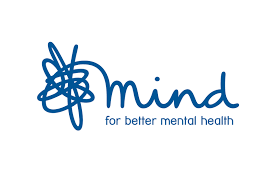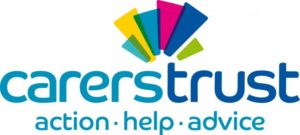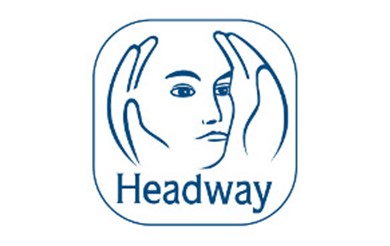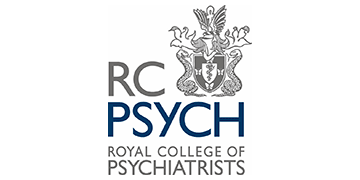What to expect
Having a family member experience a sudden cardiac arrest is frightening, but we have plenty of resources to help you and your family. It is perfectly normal to be going through shock, anger, denial, or sadness at first. Witnessing the event can be especially traumatizing and many family members feel they didn’t do the right thing or know how to help. It is important to talk about these feelings, either with a family member, friend, or professional. Remember, the key is to focus on the recovery you and your family member still have ahead of you.
Survivors often describe physical, mental, and emotional changes after the event – some that last for a few hours, and others that never go away. While each person’s experience is unique, many have said they share similar feelings and go through the same lifestyle changes, from receiving an implanted defibrillator (ICD) to new thoughts about their own mortality.
You may have similar feelings, including fears that it may happen again or worries about what an ICD is and what to do if it goes off. Many SCA Survivors face challenges after their SCA. Knowing that these are possibilities and are normal reactions can make supporting your loved one an easier experience.
Being someone’s key supporter probably only describes part of your relationship with them. You may also be a parent, partner, sister, brother, child, friend or another family member. This relationship can be just as (or more) important to you. You may also have other caring roles as well, for example as a parent to other children. Supporting others can be mentally and physically exhausting and the time you spend caring during the survivor’s recovery can really vary too. It is therefore extremely important that you try and maintain your own health and ask for help should you feel things are getting beyond you.
Resuscitation Response

Witnessing or participating in a resuscitation event can be deeply troubling, especially if the person being resuscitated is a loved one. You may experience distressing memories of the event, and these may persist for a significant time. It is also common to have feelings of doubt.
‘Did I do the right thing?’
‘Could I have stopped this from happening?’
You may experience periods where these feelings improve and then worsen. This is normal, and you should allow yourself to feel like this, there’s nothing ‘wrong with you’ for feeling this way.
Unfortunately, there is currently limited support aimed at those responding to or witnessing a
resuscitation. However, we also have resources specifically focused on this area, please ask for them or read them on our website. For some, it will help to simply be aware that this distress is a very normal response. Others may wish to discuss their concerns with
someone, be it a layperson who has had a similar experience, a medical professional or even a counsellor.
For those wishing to interact with others who have been party to a resuscitation, you can join the peer support group Chain of Survival UK. If you are looking for professional support, read the ‘seeking professional support’ section below.
Early Stages

During a cardiac arrest, there is no blood flowing through the body; if not treated quickly this can cause widespread injury to organs with the brain being at most risk. People who have been resuscitated from a cardiac arrest will therefore usually be placed in a medically
induced coma to minimise injury to the brain and at this time will also have their breathing supported with a ventilator.
Although this is very important to maximise the chances of recovery, it also means that in the first 72 hours it is often too soon to tell the extent of any brain injury and consequently it is difficult to know whether your loved one will survive or not.
During the initial days after the event, you may see several tests being carried out which will help the medical team understand the presence and extent of any brain injury. This can include a physical examination where they will assess the reflexes in the limbs and the size
and response of the pupils, regular blood tests, and imaging of the brain with a computed tomography (CT) scan or magnetic resonance imaging (MRI). In some patients where the
results are inconclusive, this initial stage can last up to and over a week.
In-Hospital Recovery
Cardiac arrest and intensive care unit (ICU) admission both cause significant physical and
psychological stress.
It is common for patients to become disoriented whilst being treated in the ICU and this can lead to patients becoming agitated and aggressive. This is referred to as ‘delirium’ and will normally pass with time. The presence of loved ones can help to reorientate patients experiencing delirium. More information and support on the management of patients in ICU can be found via the charity ICUsteps.
Repetitiveness and confusion can be common and quite disturbing for you in the very early stages but they tend to resolve quickly. If these symptoms are being experienced by your loved one then the clinical team should be informed. If they occur regularly then there may be ways in which these symptoms can be supported although it is not always possible to stop them entirely.
Some of the other symptoms experienced in this phase may result from the physical and psychological trauma of the ICU admission. When patients have a breathing tube placed they may sustain some injuries to their throat. This can lead to having difficulty with speaking and swallowing after they have been woken up from their medically induced coma. This is usually temporary but if this is not the case you may want to check if the hospital uses any tools such as RITA or the myICUvoice app which can help patients with communication.
Once a patient is medically stable and is being cared for on a normal hospital ward, there are likely to be several ongoing issues. The most common complaints reported by patients in this period are chest pain, fatigue and memory loss.
Cardiac arrest survivors often report that their memory is not as good as it was and this can be for many reasons. This will often improve with time but it can be useful to use a patient diary or notebook to aid the patient’s memory. This can also be beneficial in the long term as it can show their progress.
In-Hospital Investigations
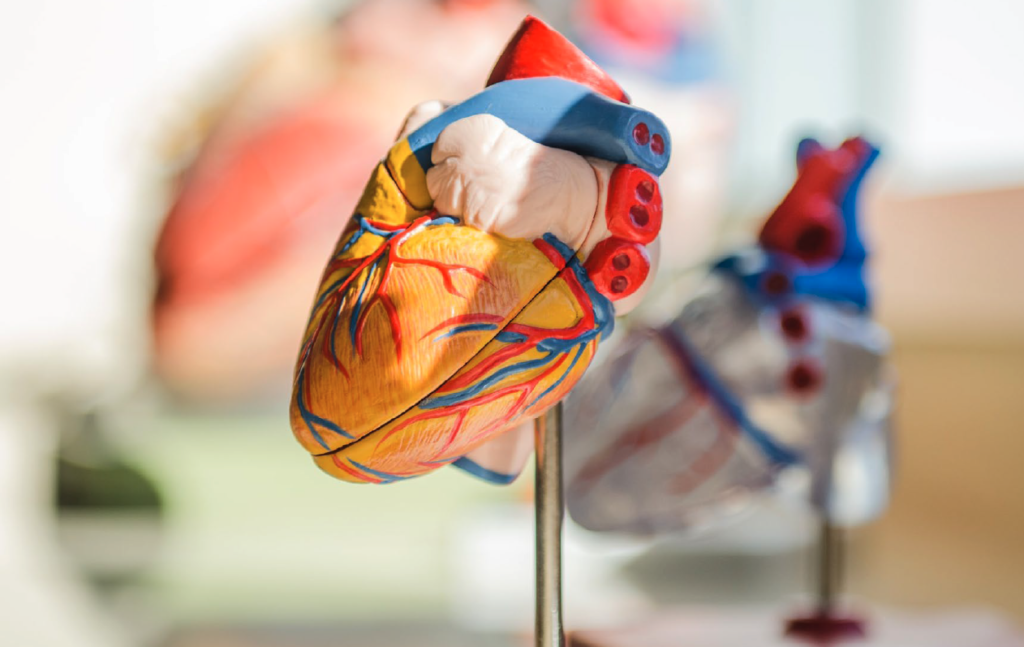
During the recovery phase, there are likely to be investigations performed to determine the cause of the cardiac arrest.
The most common cause of cardiac arrest is coronary heart disease. This is where there is a blockage in the arteries that feed the heart and is often called a ‘heart attack’ or myocardial infarction (MI). The best way to investigate this is with a coronary angiogram. This is done in a ‘cardiac catheter lab’ (Cathlab) and a wire is placed into the wrist or groin. This is then fed to the heart and a dye is injected into the arteries around the heart to see if there are any blockages. If any blockages are found, then a stent may be placed to reopen these.
A cardiac arrest can be caused by abnormal heart structure and function. Similarly, a cardiac
arrest itself may cause damage and abnormalities in the heart. This is usually identified with an echocardiogram, which is a scan of the heart where some jelly and a probe is placed on the chest (like a pregnancy scan). If this does not provide sufficient detail, then a cardiac MRI scan may be desired.
In some cases, there may be suspicions that there is a genetic component to the cause of the cardiac arrest. If this is confirmed then the medical team may discuss whether it is required to perform genetic testing on other members of the family to determine whether they are at risk. These instances are relatively rare and more information can be provided by the treating team if it is needed.
Depending on the cause of the cardiac arrest, there are also a variety of treatments that may be given. Many people will be placed on new medications. For some, this can cause distress as they have felt that they are a ‘fit and well’ person and having to take regular medication can make them feel that they are ‘sick’. The benefits and drawbacks of any medications are best discussed with the medical team.
If the cause of the cardiac arrest was a heart rhythm problem or if the cause is not identified (idiopathic), then a pacemaker or implantable cardioverter-defibrillator (ICD or S-ICD) may be fitted. This procedure is also performed in a Cathlab and involves placing a small box just under the skin, usually on the left side of the chest or abdomen. Wires go from the box to the heart to fulfil two main functions; effective pacing of the heart and correction of any abnormal
heart rhythms (shock therapy). An ICD can usually do both, a pacemaker just pacing and an S-ICD just shock therapy, although this may vary per device. Some devices also have a
separate remote monitor or phone app that communicates with the hospital providing added peace of mind.
Going Home
After a sudden cardiac arrest most patients recover well, however, many will also report some ongoing symptoms (sequelae). One of the most common persistent symptoms
is chest pain. This may be because of rib or cartilage damage due to CPR or from any procedures carried out. Usually, this will ease with time but the management of this pain can be complex as many patients wish to avoid the long-term use of opioid pain medications.
Other common sequelae are fatigue, lapses of memory, difficulty concentrating, emotional swings, personality changes, mental health challenges, issues with sleep, speech
and language (aphasia) and brain fog. These can often be subtle and difficult to detect from the outside, particularly in those who were functioning at a high level before their cardiac arrest. This may lead to issues with returning to work and everyday activities such as driving. Most people find that these issues get a lot better in the first few months; however, if they persist you should consult their GP as further investigations and treatment may be necessary.
A hurdle that is reported by many is the short-term change in dynamics in the home environment. Given the symptoms previously mentioned, many people must change the tasks which they are completing day to day. This can include a temporary loss of ability to exercise, and some restrictions on their independence, including medical restrictions on driving.
Following a cardiac arrest, there will be a period where survivors are unable to drive, but the length of this varies depending on the cause of the cardiac arrest, the medical care
received and any ongoing physical or mental symptoms. For example, if an ICD is placed then the DVLA must be informed and the patient cease driving for six months. Also, if the brain sustained a significant injury, further investigations may be needed before returning to drive.
See the Driving and the DVLA page for more information.
In situations where someone makes a good recovery, it may be that they become blasé about the experience. This could prove frustrating to you because you may still be having
difficulty coming to terms with your own experiences around the resuscitation attempt and the subsequent recovery, and your loved one may not appreciate this because they were not conscious at the time these distressing events occurred.
Although post-cardiac arrest symptoms are common and many will have an initially bumpy ride, most people can find a new balance in their life. They can adapt to the difficulties faced and find new opportunities for life satisfaction and happiness.
Current guidelines recommend that before being discharged functional assessments of physical and nonphysical impairments are done to identify early rehabilitation needs and refer to rehabilitation if necessary. The survivor should also receive a follow up within three months after hospital discharge, including screening for cognitive problems, screening for emotional problems and fatigue, and further information and support for the survivor and family members.
Self Help
You may feel numb, isolated, hyper agitated and even reluctant to talk about your issues as you do not wish to draw attention away from your loved one who has been unwell. However, these feelings are very common and understanding the emotions you are experiencing may
help you process the events and cope with their impact. We encourage you to talk these feelings through with those close to you and consider seeking professional support.
There are several ‘self-help’ strategies that many people find helpful to use during difficult times. Phone apps can be an easy way to access support and many are listed on the NHS mental health apps library.
Mindfulness, for instance, involves focussing your thoughts and feelings on the present moment. It aims to take people’s thoughts away from what is troubling them in the hope
of breaking cycles of self-blame and upset. Whilst it may not be for everyone, it can have tremendous benefits and there are a variety of ways in which it can be completed.
Many people find apps such as ‘headspace’ are an easy way to start, and they can then adapt the process to suit themselves.
Sleep is intrinsically linked to wellbeing. Everyone has experienced feeling grumpy and then after a nap and waking up as a different person. When someone is experiencing psychological distress, there can be similarities, although there will be multiple other factors involved. If someone is turning over a distressing situation in their mind, they may have difficulty in getting to sleep leading to overtiredness which can have knock-on effects and lead to a worsening spiral of sleep deprivation. Many simple techniques can be employed to improve sleep including reducing caffeine intake (especially after midday), avoiding screens before going to bed and having a consistent bedtime routine.
If your loved one’s cardiac arrest took place at home and the environment is triggering upsetting memories you may want to take practical steps to change your environment, such as rearranging furniture or changing the decor.
Professional Support
Some people might be particularly affected by a loved one’s cardiac arrest and will require support beyond the self-help strategies explained above. There are several ways of accessing this support and many types of support that can be provided.
One type of support is ‘talking therapies’ which can be accessed by directly seeking an expert in counselling, through your GP or by self-referring to the NHS service for improving access to psychological therapies (IAPT). Talking therapies such as Cognitive Behavioural
Therapy (CBT) have been shown to benefit patients experiencing mild adjustment symptoms through to severe anxiety and depression.
If you are finding that talking therapies are not providing the required help, or you feel that you would not benefit from them then there are many other options. Most of these are best
accessed through your GP. This may include Eye Movement Desensitisation and Resynchronisation (EMDR) therapy for those experiencing symptoms of post-traumatic stress disorder, or medication that can benefit a wide variety of psychological difficulties.
Recovery Challenges
Knowing that these are possibilities and are normal reactions can make supporting your loved one an easier experience. Examples of things that others have dealt with include:
Work
Many SCA survivors will tell you that they were looked at differently by employers and co-workers. Some people will try and be compassionate about the situation. Others will turn and run. Don’t take this personally. They probably just don’t know what to say. If it is appropriate, talk to colleagues about what has happened, and offer to educate them on how to respond if they are with someone who experiences a cardiac arrest.
School
Chances are classmates of your loved one will know about or may have even witnessed their SCA event. If they are comfortable sharing their story, others will more than likely be interested and want to hear about it. Consider sharing and using the occasion to educate others about the importance of CPR/AED awareness. Seek trusted teachers, coaches or friends, and don’t be afraid to talk with the school pastoral personnel.
Family
When a person survives SCA, it is most likely a big scare for their entire family. Many survivors have had family members start CPR and call 999. Be patient with everyone involved. A common reaction is to be scared something bad will happen again. The best solution is for each of you to talk about your feelings: good, bad and otherwise. If you weren’t doing this before the SCA, now is the time to start.
Medical Devices
Many survivors receive an ICD soon after the SCA. Become educated about this device, and make sure your family does too. If it is needed, it will give a shock – one that could save their life.
You can find out more about shocks here.
Many times survivors face other challenges as well: physical limitations, memory lapses, diet restrictions, medications, depression, anxiety and fear.
Coping
There can be many challenges after a life-changing event like an SCA, and many have found joining helps them adjust, both emotionally and physically, to their new lives as survivors.
Finding other people who’ve been through a similar experience will help with fears and anxiety and provide a forum to ask questions to someone who’s already been through this.
Sometimes, survivors find that more formal counselling is necessary. This applies to the family and friends of the survivor as well. Members of Sudden Cardiac Arrest UK can get access to FREE counselling, see here for more information.
If the emotional and mental challenges following the SCA persist or interfere with your life, or if you just need to talk, contact a professional.
See the following organisers for help with being a key supporter:


